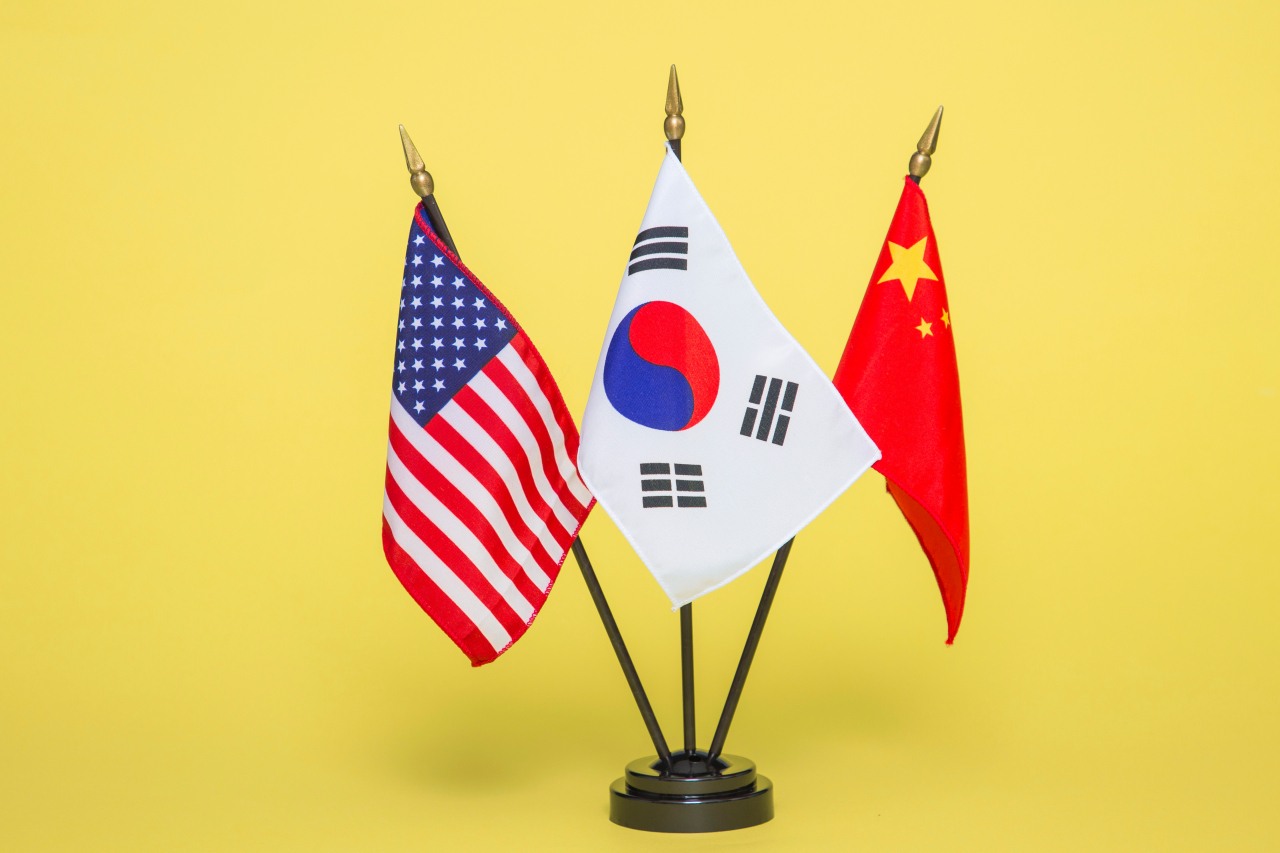 |
The flags of the US, South Korea and China (from left to right). (123rf) |
Opposition leader Lee Jae-myung suggested on Monday that President Yoon Suk Yeol should balance ties with the US and China, saying diplomacy is not always black-and-white, amid his party’s criticism of Yoon’s remarks as overly leaning on Washington and being “self-destructive.”
In a Reuters interview last week, Yoon for the first time indicated support for arms aid to Ukraine if a human rights crisis prompts it. He also described China’s claims to Taiwan as a global issue, stressing he opposed any unilateral attempts to change the status quo on Taiwan by force. Russia and China immediately fired back at Yoon.
“Let’s put our national interests before anything else,” Lee, head of the main opposition Democratic Party of Korea, said at a party meeting with senior party members, referring to Yoon’s six-day state visit to the US, which started Monday. Yoon officials expect the tour to be the defining moment in marking 70 years of relations.
Korea should pursue practical approaches to managing ties with the outside world, because “leaning on someone while antagonizing the other” is more than likely to lead to a “crisis in both security and the economy,” according to Lee. Lee’s party wants the government to lavish just as much attention to Beijing, Seoul’s largest trading partner.
But neither Lee nor his party has so far elaborated on the methods the Yoon administration could use to reel in both the US and China, while still not angering either of them, amid a deepening rivalry between the two superpowers.
Instead, Lee lashed out at Yoon for his “humiliating outreach” to Japan, referring to Yoon’s summit with his Japanese counterpart in mid-March. There, the Korean leader essentially endorsed his March 6 deal, which skips an official apology and direct compensation from Japanese companies held liable for damages for colonial forced labor by a 2018 Korean court ruling. Japan ruled the Korean Peninsula from 1910-45.
“We need to rethink about the way we reached out to Japan,” Lee said of Yoon’s engagement with Japan. Korea has had to deal with “only provocations” following the president’s “overly pro-Japan outreach,” Lee added, citing recent rows over Japan’s textbook revisions and handling of its wartime shrine.
Seoul-Tokyo tensions flared up two weeks ago, when the Japanese government issued an annual foreign policy review that claimed the Dokdo islets as its own. Korea summoned Japan’s chief envoy in Seoul to lodge a complaint.
Last week, Korea expressed regret over visits by Japanese lawmakers to the controversial Yasukuni Shrine, a move Seoul sees as an attempt to whitewash Tokyo’s wartime wrongs because the shrine honors 14 World War II leaders convicted as war criminals.
“The engagement with Japan was an utter, complete failure,” Lee said. “The administration should learn from the mistakes.”







![[Today’s K-pop] Blackpink’s Jennie, Lisa invited to Coachella as solo acts](http://res.heraldm.com/phpwas/restmb_idxmake.php?idx=644&simg=/content/image/2024/11/21/20241121050099_0.jpg)